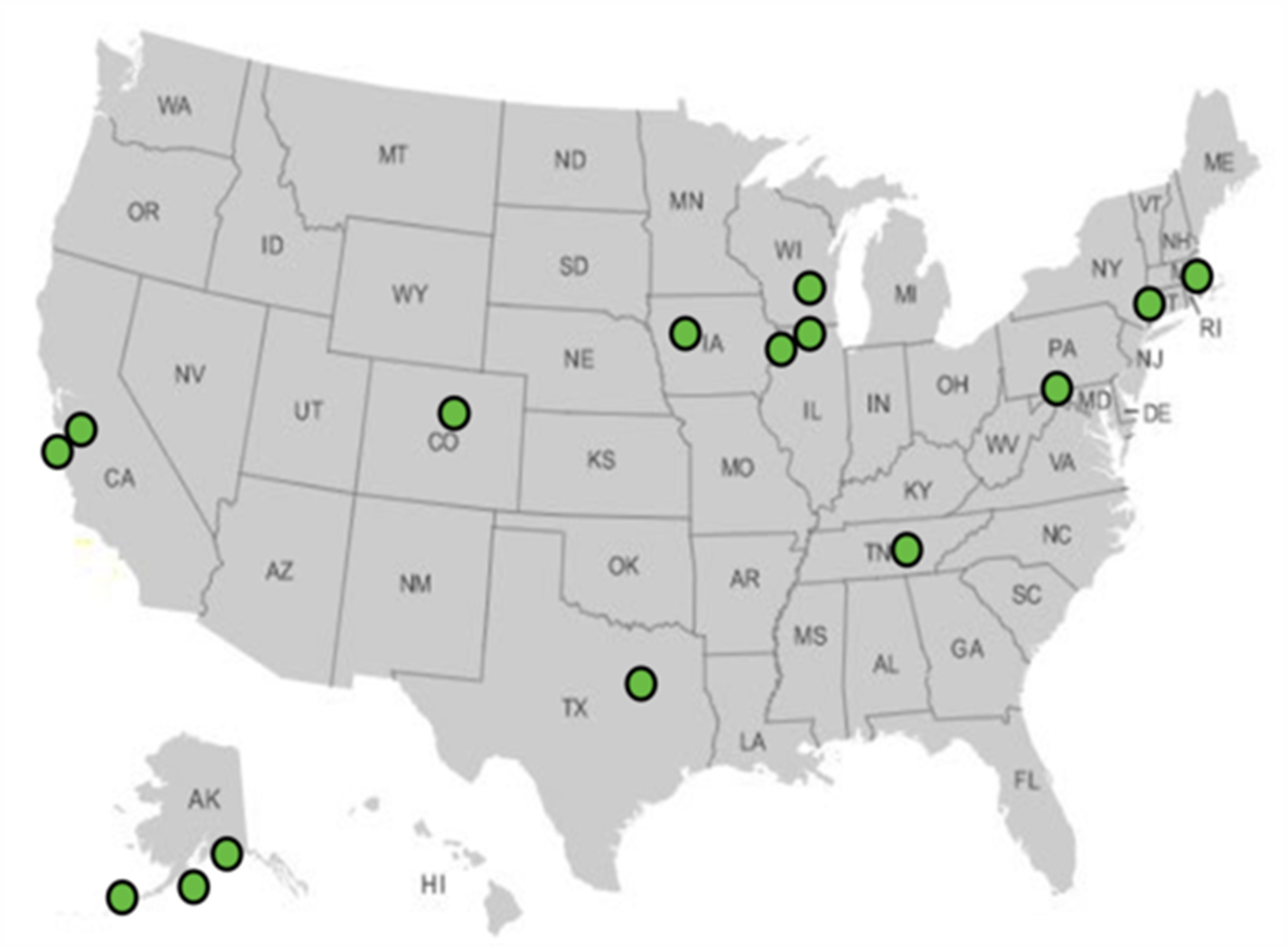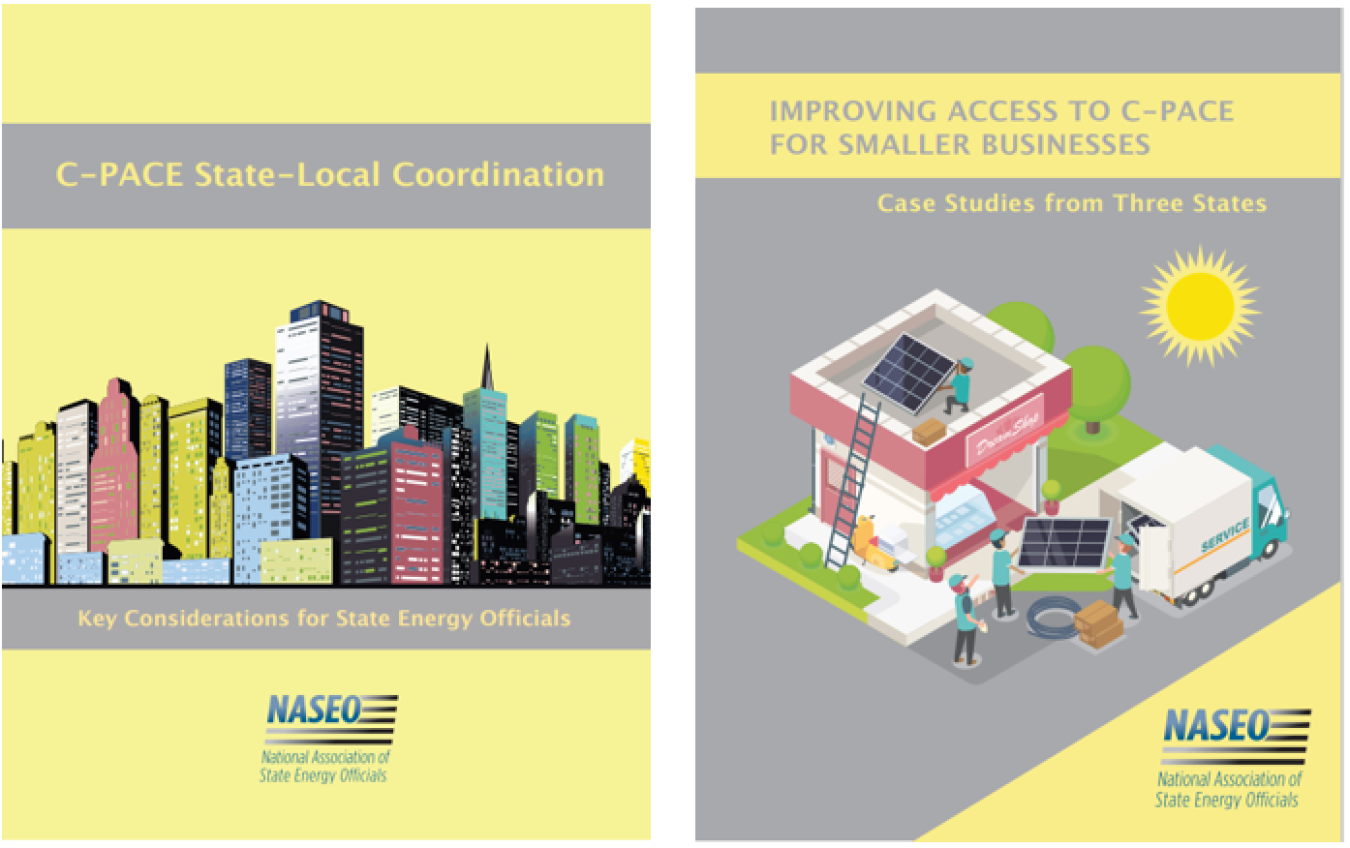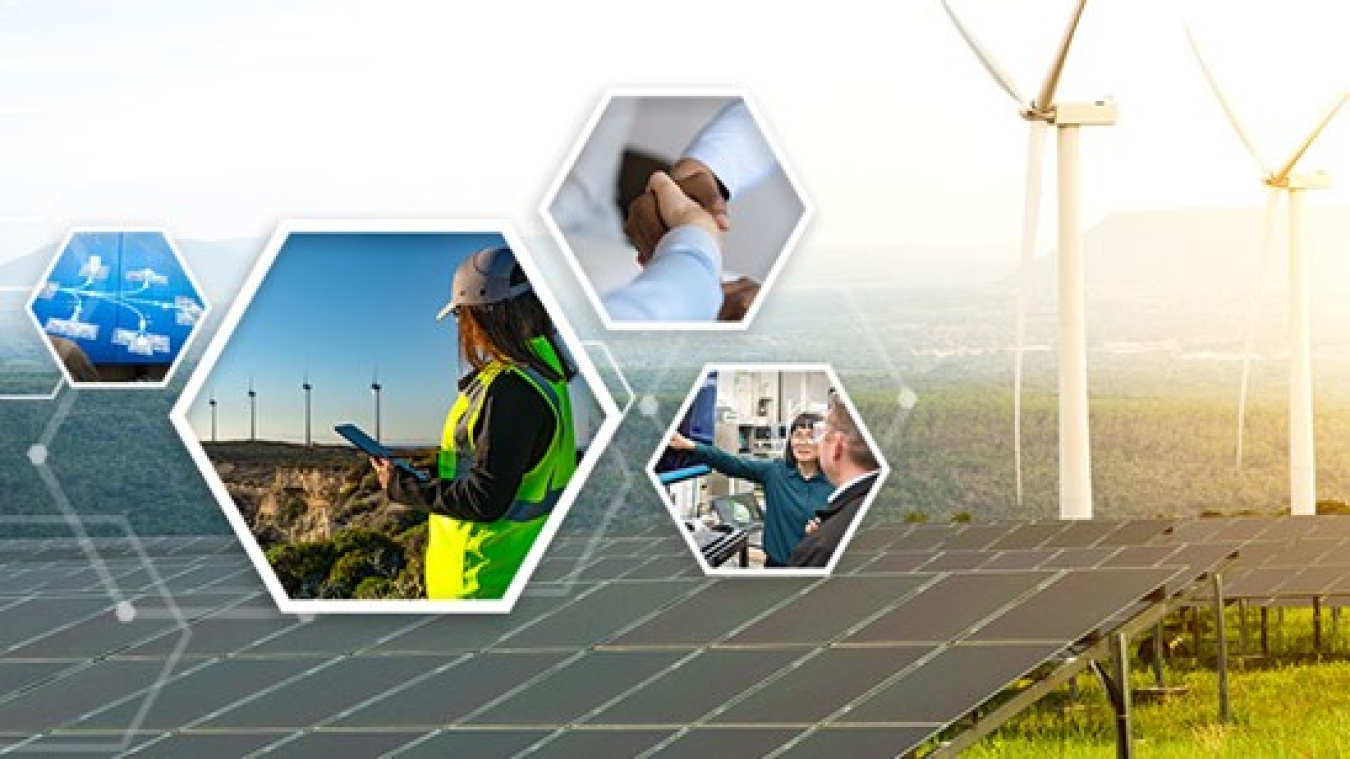News
Energy Savings Performance Contracting Request for Information
The U.S. Department of Energy (DOE) recently published a request for information (RFI) that seeks information from nonprofit organizations, and others, that have the expertise to support energy savings performance contracting (ESPC) in the public sector, i.e., the municipalities, universities, schools, and hospitals market. Practitioners that work closely with state energy offices to design and implement ESPC programs are encouraged to respond to the RFI.
Responses to the RFI must be received no later than 5 p.m. ET on Aug. 25, 2021.
Please see the Federal Register announcement for the full RFI publication and instructions on how to submit comments.
DOE Announces Technical Assistance for Local Governments on Waste-to-Energy

The Bioenergy Technologies Office (BETO) and the National Renewable Energy Laboratory (NREL) are pleased to announce the phase one selections for the Waste-to-Energy Technical Assistance for Local Governments Program.
This technical assistance program was created to mobilize national laboratory analyses and technical expertise around energy and resource recovery from organic waste streams (e.g., food waste, sewage sludge, animal manure, as well as fats, oils, and greases). The insights and analyses will provide an avenue for municipalities and tribal governments to make informed decisions about closing waste loops and generating additional value streams from waste.
For more information, read the DOE Technical Assistance for Local Governments on Waste-to-Energy announcement.
DOE Kicks off the Summer of Solar
On July 15, 2021, DOE kicked off the Summer of Solar to celebrate Americans of different backgrounds who are harnessing the sun’s energy and the communities that are making it easier to go solar. As part of the celebrations, the Secretary of Energy Jennifer Granholm visited a homeowner in Maryland to talk about her experience transitioning to solar and how the Solar Automated Permit Processing+, known as SolarAPP+, could help speed up the process. SolarAPP+ is a web-based platform that automates solar permitting for local governments and other authorities having jurisdiction—making it easier for local governments to quickly and safely approve standardized rooftop projects.
Local governments can join the Summer of Solar celebrations by emailing solar@ee.doe.gov. Local governments can also sign up for updates about the campaign and let their social media networks know they're #RunningOnSunshine during the #SummerOfSolar.
For more information, see the Summer of Solar 2021 announcement.
Study Assesses Wind and Solar Value in U.S. Power Markets Over Time
In regions where wind and solar make up a large share of power generation, sunny and windy days can lead to an excess supply of electricity, driving down hourly power prices. While lower prices are good for consumers, this decline in market value is not as good for energy producers and wind investors—and it could potentially limit wind and solar deployment, thus endangering the realization of power-sector decarbonization goals.
A new study from Lawrence Berkeley National Laboratory explores how market value—the value of energy and capacity in regional power markets—changed over time at 2,100 utility-scale power plants across major power markets, with data through 2019. The study concluded that, despite a decline over time, the average market values of wind and solar in 2019 were still higher than their respective average generation costs. The study also identifies ways future market, technology, cost, and deployment trends may affect the value/cost relationship and how to mitigate declining market value. States and local governments can use this information to better inform energy planning and investment decisions in their jurisdictions.
Access the full article at no cost from the journal Joule.
NASEO Releases Reports on Commercial Property Assessed Clean Energy Program State-Local Coordination and Small Business Strategies

The National Association of State Energy Officials (NASEO) recently released two new reports on Commercial Property Assessed Clean Energy (C-PACE): "C-PACE State-Local Coordination: Key Considerations for State Energy Officials" and "Improving Access to C-PACE for Smaller Businesses: Case Studies from Three States." The reports focus on steps state energy offices can take to improve state-local coordination in support of C-PACE programs, and how state energy offices and C-PACE program administrators can improve access to C-PACE for small businesses, an underrepresented market segment in C-PACE transactions.
- "C-PACE State-Local Coordination: Key Considerations for State Energy Officials" finds that C-PACE programs are multi-layered and require the close coordination of both state and local governments, as well as third-party administrators and the private sector. The report highlights key best practices state energy offices can consider to expand local government C-PACE adoption and use.
- "Improving Access to C-PACE for Smaller Businesses: Case Studies from Three States" identifies common barriers impeding the ability of small businesses to utilize C-PACE financing, such as lack of expertise and high programmatic fees compared to the project size. The report draws on examples from Colorado, Michigan, and Minnesota to elevate strategies that promote the use of C-PACE financing by smaller businesses. Ideally, state energy offices can use this information to collaborate with C-PACE administrators and increase small business access to C-PACE financing.
Customized Technical Support Available to States, Local Jurisdictions, and Tribes

Many jurisdictions are fast-tracking climate action and taking a hard look at how renewable energy, sustainable transportation, and energy efficiency projects can best support their energy and climate goals.
Experts at NREL are available to support these efforts through the State, Local, and Tribal Technical Support Services Agreement.
Through streamlined contracting and cost-effective pricing, the services agreement affords users timely support and technical insight needed to navigate the complexities of clean energy planning when federally supported programs are not available or sufficient.
Users will gain access to NREL expertise, models and tools, and guided analysis to support data-driven, actionable energy decisions that drive renewable energy, energy efficiency, and/or sustainable transportation projects.
Explore the list of technical support service options and connect with NREL to get the technical support you need for your energy projects.
Virtual Events
Now Available: 2021 Better Buildings, Better Plants Session Recordings

Session recordings from the 2021 Better Buildings, Better Plants Summit are now available. This annual event for Better Buildings, Better Plants Partners and other key stakeholders provides the opportunity for professionals to explore emerging technologies and share innovative strategies in energy and water efficiency. Attendees took part in interactive sessions with industry experts and market leaders and had multiple opportunities to network with peers. Use the links below to watch the summit session recordings.
Public-sector focused sessions include:
- Addressing Energy Burden and Workforce Development in Low-Income Communities
- Pathways to Community-Wide Energy Resilience
- Teamwork Makes the Dream Work: Successful Collaboration for Implementing Carbon Reduction Goals
- Commercial PACE Toolkit: New Resources to Propel Your C-PACE Program
- Local Government Sector Meet-Up
- K-12 Sector Meet-Up.
Other sessions and workshops of interest to the public sector include:
- Leading the Way to a Diverse and Qualified Workforce
- Pathways to Zero: Designing Impactful Carbon Reduction Targets
- Renewables and Advanced Controls: Why Now Is the Time
- When Progress Flows: Water Reduction, Reuse, and Creative Solutions.
To view all session recordings and explore other resources visit the Summit webpage.
Infrastructure Investments in the News
Arlington County Helps Put Solar Financing on the Menu in Historic First for Virginia
The Arlington Commercial Property Assessed Clean Energy (C-PACE) program is a county-sponsored program that enables owners of commercial and industrial buildings to use private-sector money to finance energy efficiency, renewable energy, and water efficiency improvements to their property.
The Arlington C-PACE Program is helping a local business pay for roof upgrades and two solar panel systems totaling 44 kilowatts on two adjacent properties—this is the first project completed under the Arlington C-PACE Program. Arlington County was a member of the DOE-led C-PACE Working Group.
Energy Conservation and Optimization Act Signed into Law in Minnesota
Earlier this year, the Energy Conservation and Optimization Act of 2021 (ECO Act) was signed into law in Minnesota. The ECO Act will help Minnesota's energy conservation programs, reduce greenhouse gas emissions, and create local jobs across the state through electrical, heating and cooling, ventilation, and insulation installation projects in homes and businesses.
Lt. Governor Peggy Flanagan shared that “through the ECO Act, with investments in conservation, and through Minnesota's Energy and Weatherization Assistance Programs, we are reducing the energy burden for Minnesotans who have been spending too much of their incomes to keep their homes cool in the summer and warm in the winter.” It is estimated that for every $1 invested in energy conservation, there is a $3.75 return on investment for Minnesotans.
